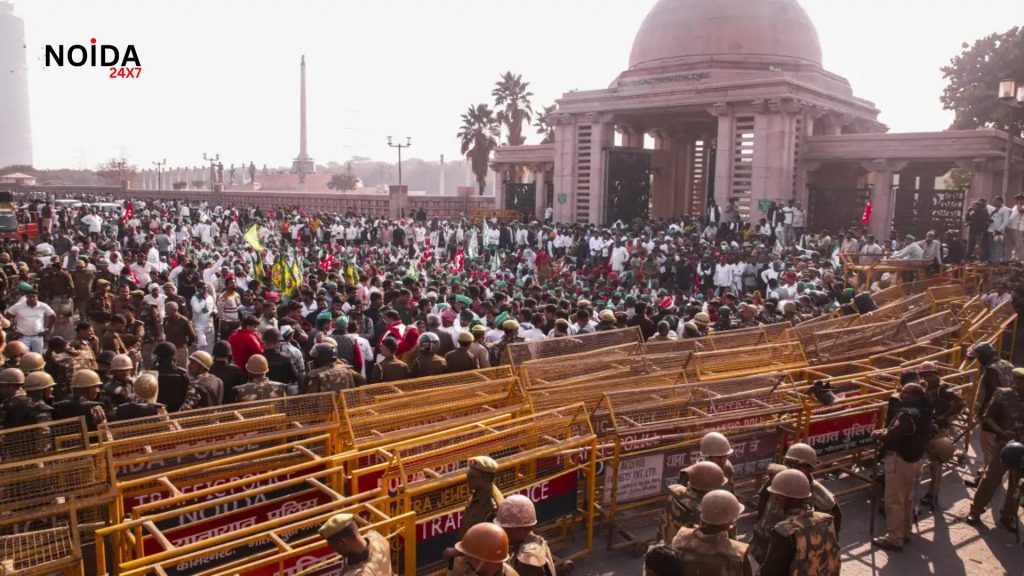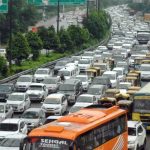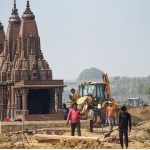In Noida, Uttar Pradesh, a major farmers’ protest led to the arrest of over 160 individuals on Tuesday. The farmers were marching towards Delhi to voice their demands. They paused their movement for a sit-in at the Dalit Prerna Sthal, near the Delhi-Noida border. Their protest focused on several key issues, including a fair Minimum Support Price (MSP) and adequate compensation for land acquired by the government.
Background of the Protest
The farmers initially gathered in Noida on Monday. They responded to a call from the Samyukta Kisan Morcha (SKM). Their goal was to demand better conditions for farmers. They stated that they would resume their march towards Delhi if their demands were not addressed within seven days.
The farmers encountered police barricades near the Dalit Prerna Sthal. This led to the decision to hold a sit-in protest at that location. The protesters wanted to express their frustrations peacefully. However, the situation escalated when police moved in to disperse them.
Police Action and Arrests
Around 1:30 PM, the police began arresting the protesters. They invoked Section 170 of the Bharatiya Nagarik Suraksha Sanhita (BNSS) to make these arrests. This allows law enforcement to act to prevent a cognizable offense. Among those arrested was Sukhbir Khalifa, a leader of the Bharatiya Kisan Parishad. Other notable farmer leaders, such as Pawan Khatana, the state president of the Bharatiya Kisan Union (Western Uttar Pradesh), were also taken into custody.
Many women farmers participated in the sit-in and were included in the arrests. Following their detainment, these individuals were taken to Luksar Jail in Noida.
Reasons for the Protest
The protests began when farmers assembled near the Mahamaya flyover. They aimed to march to Delhi to demand compensation for government-acquired land. However, their pathway was blocked by police barricades and heavy security measures at Dalit Prerna Sthal. This obstruction led to the sit-in protest.
The police response caused severe traffic disruptions at the Delhi-Noida border. Commuters faced significant hardships, particularly as the protests coincided with the Winter Session of Parliament.
Reactions from Farmers’ Leaders
Naresh Tikait, the leader of the Bharatiya Kisan Union, condemned the police actions. He announced plans for a community meeting, or panchayat, in Muzaffarnagar. Tikait stressed that the farmers would continue to fight for their “just demands.” He called for unity among farmers in the face of governmental opposition.
Khalifa also expressed strong disapproval of the arrests. He pledged that protesters would persist in their struggle for fair compensation and the rights of farmers. The sentiments resonated widely among the farmers who participated in the protest. They emphasized that their fight for justice in agriculture and land acquisition is far from over.
Context of Farmers’ Grievances
The farmers’ protests are part of a larger discontent among agricultural workers in India. Many farmers feel marginalized by both state and central governments. The issues surrounding land acquisition and fair compensation continue to be significant points of contention. Farmers argue that the current policies do not adequately address their needs and rights.
The plea for a fair Minimum Support Price (MSP) is central to their demands. Farmers believe that they deserve a price that accurately reflects the cost of production and ensures a dignified living. Their calls for action are growing louder as they seek long-overdue reforms.



